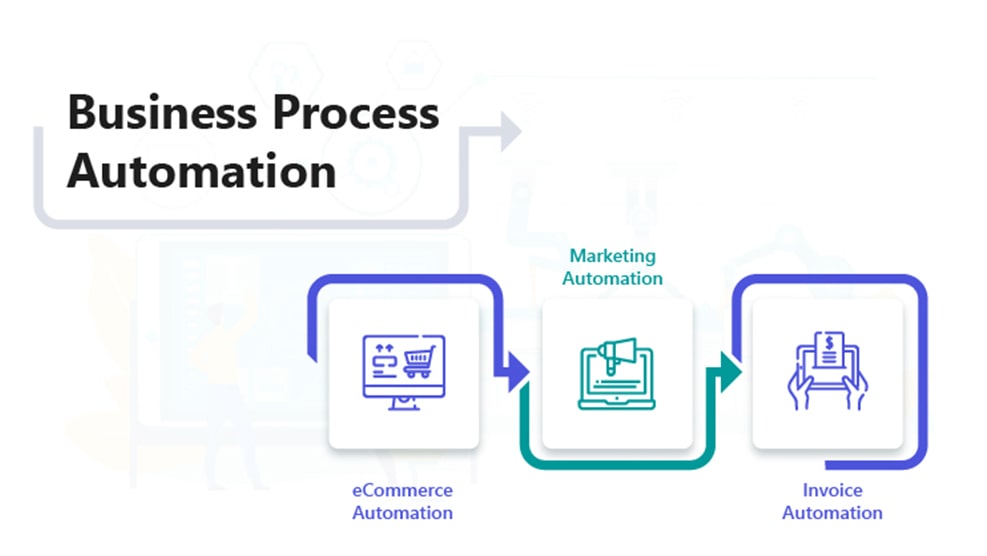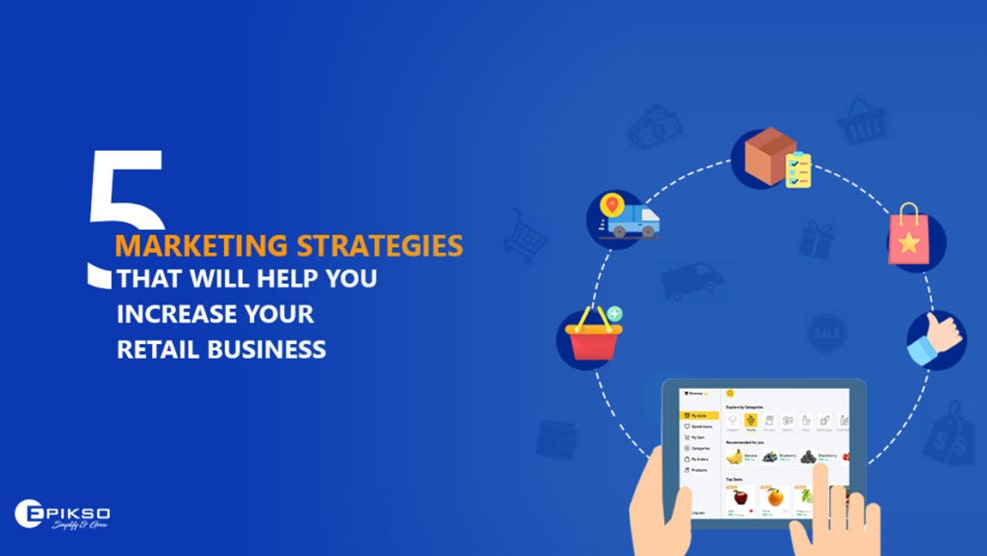What You Need to Know About Online Reputation Management
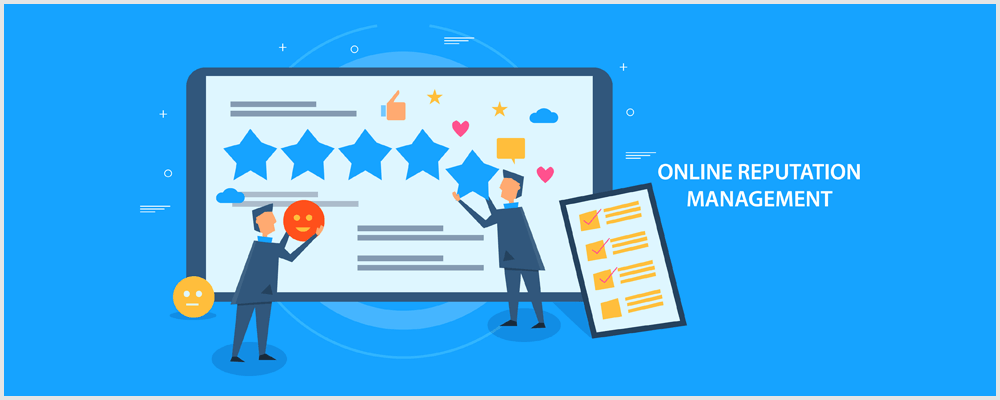
With the rapid expansion of the World Wide Web, there has been increasing attention on the brand image that a company projects on the internet. Your online reputation can be just as important, long-term, as immediate revenue.
Many people find comfort in giving their opinions via online public forums, such as the comments section of blogs, social media platforms (Facebook, Twitter, YouTube, etc.), and review sites. While these platforms are useful to connect with clients and attract new ones, they can also be the source of negative commentary that hurts your brand.
Approximately 84% of consumers trust online reviews as much as personal recommendations, while 73% only trust local businesses after reading positive reviews.
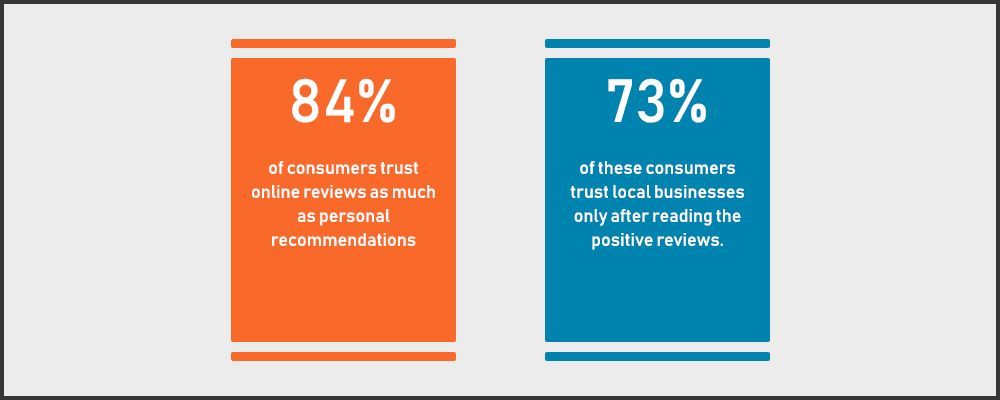
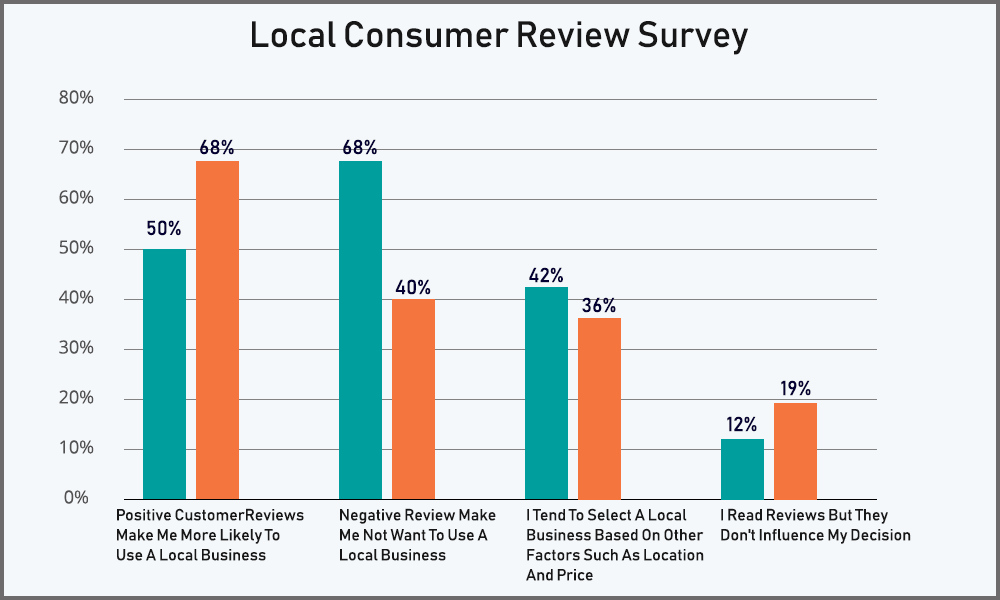
If you think online reviews of your business don’t matter, these findings suggest the opposite: reviews are highly influential for your business! Therefore, you need to create a process that your customers to leave feedback for you (so they can discuss issues with you rather than venting on other platforms). Also consider that reviews can be opportunities for growth, illuminating ways you can improve your business.
In this article, we will discuss why online reputation is critical to your business, along with various strategies you can use to adroitly manage it.
Role of online reputation management in your business
Businesses are expanding on the internet to meet the needs of a vast population of potential customers. However, as the company expands digitally, risk proliferates, and management gets trickier. Your company’s good name, public profile, and trust with customers are all at stake. Online reputation management (ORM) becomes important. ORM is a solution to monitor, assess, and control reputation, helping your business achieve healthy growth.
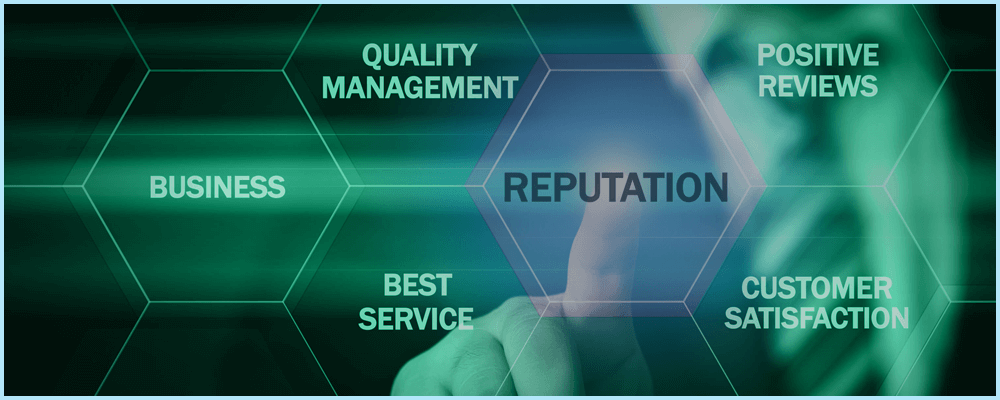
ORM involves regulating your online brand image to preserve and accelerate the growth and prosperity of your business. ORM enables you resolve and overcome negative reviews and comments about your products and services.
Online reputation affects buying decisions and sales.
Most businesses understand the incredible importance of going beyond digital engagement to maintain a positive online presence. After all, as mentioned above, more than three-quarters of people trust online reviews as much as personal recommendations.
Your online reputation has staying power.
To err is human, but there is always room for improvement – so it is impossible to completely avoid negative reviews. When someone speaks poorly of your business online, their statement will often remain on the internet indefinitely. If reviews are not monitored consistently, bad ones can damage your business. Your sales and growth may suffer.
Online reviews can help your search engine rankings.
 According to one survey, online reviews carry 13.13% of the weight in determining how Google and other search engines rank your business (see below graph).
According to one survey, online reviews carry 13.13% of the weight in determining how Google and other search engines rank your business (see below graph).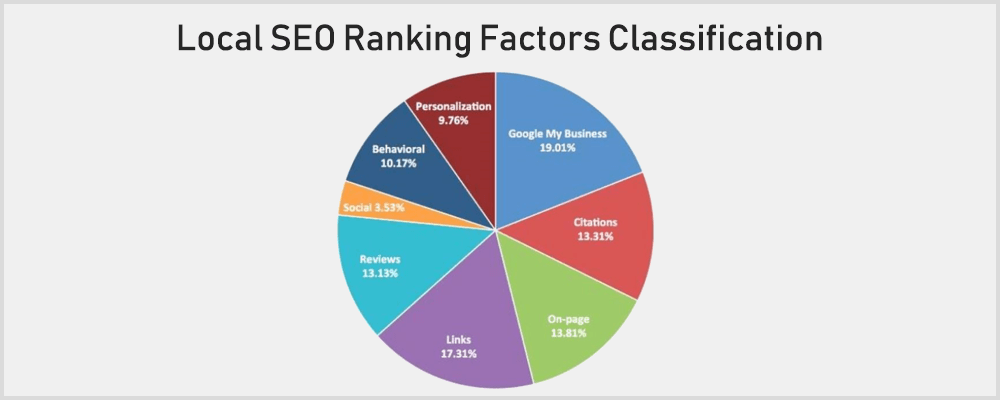 Increasing Google reviews by investing in an automated review management system may boost your rankings, improve click-through rates (CTRs), and convince shoppers to become buyers.
Increasing Google reviews by investing in an automated review management system may boost your rankings, improve click-through rates (CTRs), and convince shoppers to become buyers.
What do ORM services do for you?
Negative reviews can hurt your reputation, regardless their backstories. A reviewer might not be presenting the situation fairly, but online prospects will not have that information.
By hiring ORM service providers, you can get help concealing negative web reviews. ORM experts specialize in assessing, protecting, and improving your brand’s image through various strategies.
ORM professionals help spread both good and neutral news about your business, so that your public profile can reach or stay at the top of search rankings. They also help expand the reach of positive commentary, connecting it with your profiles across the web.
Here are strategies that your ORM service provider uses to maintain and enhance your reputation:
Search engine optimization

Search engine optimization (SEO) is a set of standard practices intended to achieve higher rankings of your webpages in Google and other search engines. In the 2020s, businesses are bolstering their SEO by combining long-form content with solid promotional efforts a dual approach to increase customers visits.
ORM service providers utilize thoughtful SEO keywords that help internet users find you when they enter organic searches. SEO instrumental in highlighting positive reviews and banishing negative information to the outskirts of the internet.
According to one report, 51% of website traffic comes from organic search, so SEO is fundamental to online success. Your ORM service provider can plan steps to grow positive digital content and push negative information off the front pages.
High-quality, relevant content

To get good search rankings and further establish a strong reputation, companies need high-quality content. Content that is relevant and valuable to customers builds trust services and encourages more people to visit your site. As reported by the Content Marketing Institute, the conversion rates of content marketing adopters are six times higher than those of non-adopters.
A forecast by Cisco found that videos account for 82% of all consumer internet traffic. Our news-feeds on Facebook, Snapchat, Instagram, Twitter, and LinkedIn are increasingly dominated by user videos and video ads.
ORM service providers ensure that your web content-including text, images, and video are well-constructed, organized, and unique. That way visitors find positive, highly relevant material when they come to your website or social profiles. The presence of the content fuels perceptions of your integrity and reliability, enhancing your brand’s reputation.
Social media reputation management

Social media is one of the primary ways to build your brand. While social platforms (such as Twitter, Facebook, Pinterest, and Instagram) can attract more customers, they may also collect harmful reviews and commentary. More than 70% of consumers would recommend a brand to loved ones on social media if they had a positive experience so it’s crucial to find ways to spotlight those happy customers.
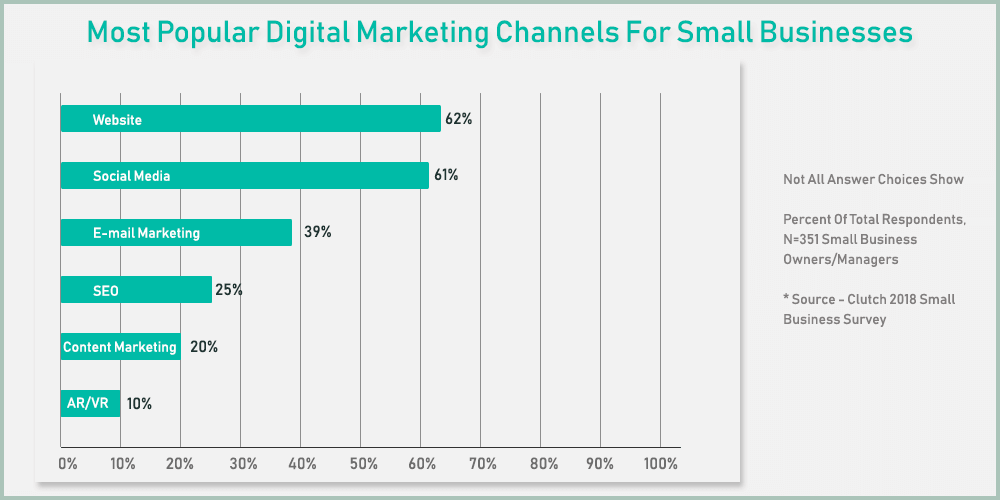
According to a recent survey (see above graph), 61% of small businesses invest in social media.
Nonetheless, many companies struggle with low social media ad budgets. Luckily, Facebook and other social platforms have continually refined their ad targeting tools, making it easier to spend budgets smartly.
ORM service providers can improve your online reputation by monitoring and eliminating negative material. That way your social media presence is buoyed by positive views.
Third-party website monitoring
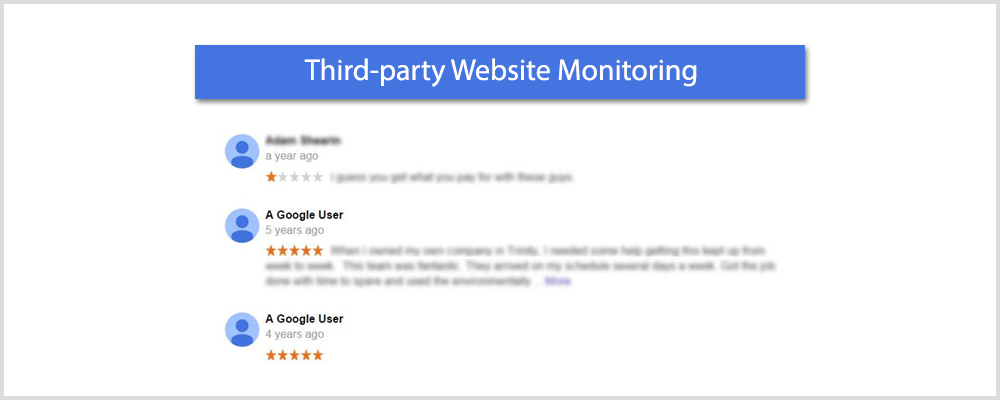
When there is negative information in spaces you control, such as your website or social profiles, you can be alerted and take action. However, information on third-party sites can damage your reputation, and their systems are inaccessible to you. Third-party review sites (such as Google, Facebook, Yelp, Yellow Pages, and TripAdvisor) are popular because they offer independent avenues for customers to express their perspectives. Unfortunately, though, people sometimes have poor experiences.
ORM service providers monitor these external websites for user-generated content (UGC) to see what people are saying about you. Keeping track of sentiment toward your brand helps you monitor your reputation, quickly respond, and improve customer experience based on legitimate feedback.
How to achieve online reputation management
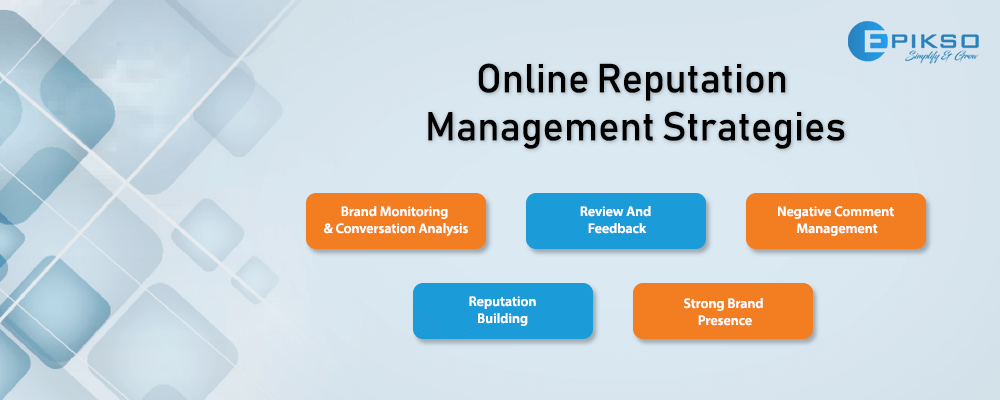
These strategies are key to managing online reputation effectively:
1. Monitoring
Since social media is an accessible platform for anyone to get their opinions into the public eye, it is important to monitor these spaces and respond rapidly. However, since the World Wide Web is complex, it is difficult to consistently monitor all environments.
Online reputation management service providers accomplish this task through specialized knowledge and next-generation ORM tools.
2. Responding instantly and politely (example)
“A lie can make it halfway around the world while the truth is putting on its shoes”- Mark Twain
The phenomenon Twain observed has become even more pronounced in the 21 st century. Bad opinions, gossip, and rumors spread at lightning speed in the internet age. If you are being targeted, react quickly and assess all relevant data. Thoroughness in your initial efforts can help you get to the root of problems for more meaningful solutions.
Example response: “We understand your problem. We are working on it and will get back to you as soon as possible.” ORM professionals can deliver these types of quick responses and attract positive reviews to overpower negative ones. Meanwhile, you can stay centered on your core competencies. Keep in mind that a fast, surface-level reply is better than a slow reply with more information.
3. Apologizing
Negative reviews can be frustrating. However, replying aggressively or rudely to customers is never wise. Apologies, along with small gestures of goodwill, can help customers retain a positive perception of your brand.
4. Paying attention to feedback
Knowing what customers find important and how they want to interact with your brand is for valuable information. It is essential to listen to what customers think would improve a product or service. You may decide to make a change, knowing it will please people like the customer who provided the feedback. Offer customer support by phone, live chat, Twitter, and Facebook 24/7 to deliver results quickly.
5. Investing in ORM
Given the above insights, it is clear why so many organizations choose to invest in ORM professionals and technologies. Every day ORM becomes more critical to business success. The strategies of this field can help you realize strong returns while enhancing credibility and trust cornerstones of a positive online reputation.
Just find one negative article on the first page of a business’s search results is enough to dissuade 22% of potential customers. ORM can help you make it through the most reputation-challenging storms.
Online reputation management: DIY vs. ORM services
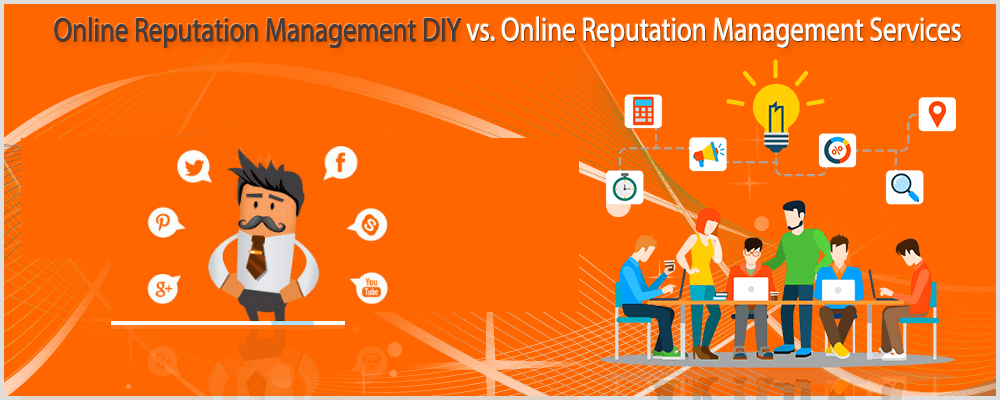 Do-it-yourself (DIY) ORM is best for business owners who have more time than money. These managers and owners have enough time to be hands-on with their online services. They want to interact with customers, engage on the platforms where they’re listed, and handle damage control as-needed.
Do-it-yourself (DIY) ORM is best for business owners who have more time than money. These managers and owners have enough time to be hands-on with their online services. They want to interact with customers, engage on the platforms where they’re listed, and handle damage control as-needed.
With an ORM service, professionals at an agency take care of online reputation on behalf of the company. With a reputation management firm performing the work, the owner doesn’t have to worry about managing customer interactions beyond their own site. It’s best for businesses that have more money than time. This option is also a great choice for businesses that have less knowledge of social media and ORM tools.
Bottom line
Social media and other online platforms can have a significant impact on a company’s reputation. With online reputation management, you can protect your brand from negative exposure in search engine results and maintain your reputation. It may take time for you to master the intricate details of ORM, but it is well worth the effort and investment (whether internal or external).
Online reputation management can improve conversion and customer retention. With ORM, you can ensure the ongoing success of your organization through continuous monitoring, analysis, and reshaping of online communications. For in-depth ORM analysis and guidance, email contact@epikso.com or book an appointment today.







